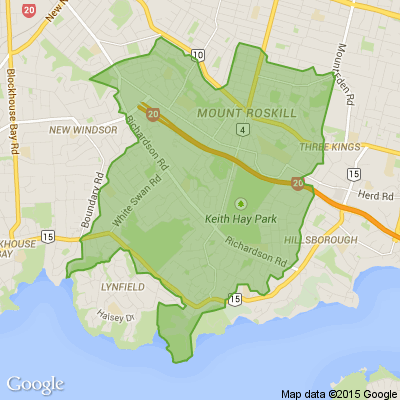Te Marama me ngā Whetū - Day 28
The Moon and the Stars
In the beginning, when Ranginui (the Sky Father) and Papatūānuku (the Earth Mother) were separated, the heavens became a vast canvas of darkness. Tāne, the god of forests and man, adorned the sky with radiant stars — each one a tīpuna (ancestor) who had passed into the realm of the gods. They became known as Ngā Whetū o te Rangi (The Stars of the Sky).
Among these stars, the most important cluster was Matariki, whose return each year marked a time of renewal, remembrance, and harvest.
The Moon’s Journey
Te Marama (the Moon) watched from her lonely path in the heavens. She admired the brilliance of the stars and longed to be part of their eternal dance. But Te Marama’s journey through the sky was a solitary one, following her cycle of waxing and waning to bring balance to the tides and light to the night.
Te Marama approached Tāwhirimātea (god of the winds) with her wish. “Tāwhirimātea, I want to shine like the stars and be part of their unity. Please, help me join them.”
Tāwhirimātea, who had scattered the stars across the sky in his fury during the separation of his parents, listened to Te Marama’s plea. But he shook his head. “E Marama, your light is different. You do not burn with fire as the stars do. You are a reflection, a guide for those who walk the earth in darkness.”
Te Marama felt sorrowful but decided to speak with Matariki, the brightest and most beloved of the star clusters.
The Gift of Connection
Matariki greeted Te Marama warmly. “Te Marama, you have your own beauty, but I see your longing. During my time in the sky, I will send my tamariki (children) to guide you.”
Matariki’s children, the stars of her cluster, began to move in rhythm with the moon. They whispered ancient songs of hope, unity, and renewal, their light twinkling like laughter. Te Marama found joy in this companionship, even though it was fleeting.
Each night, as Te Marama waxed to fullness, she felt the presence of the stars more strongly. They taught her how to listen to the world below: the cries of the karoro (seagulls) over the tides, the hum of the forest under the moonlit sky, and the dreams of the people.
The Sacred Cycle
In return, Te Marama shared her light, illuminating the stars so that they could be seen more clearly by the iwi (people) below. Together, they became a guide for fishing, planting, and navigation.
From that time on, the people celebrated Te Marama alongside Matariki, acknowledging the balance between her cycles and the stars' steadfastness. Her waxing and waning became a metaphor for life’s rhythms: growth, rest, and renewal.
The heavens were no longer lonely for Te Marama, as she realised she was part of a greater story — a connection between Ranginui above and Papatūānuku below.
Kōrero Whakamutunga (Closing Words)
Today, when the moon rises full and bright, she reminds us of unity, and when Matariki returns, she brings the promise of new beginnings. Together, they teach us to honour the past, embrace the present, and look forward to the future.
Te Pūrākau o Te Rangatira Ngākau Hūmarie - Day 34
The Tale of the Humble Leader
In a small Māori village near the coast of Aotearoa, the whānau were preparing for Te Rā o te Kirihimete (Christmas Day). It was a time of celebration, sharing, and remembering the values of aroha (love), manaakitanga (hospitality), and kotahitanga (unity). However, this year, the village faced a challenge. Their rangatira, Wiremu, had grown distant and prideful, burdened by his position.
Wiremu often made decisions alone, thinking that his wisdom and authority were enough to guide the iwi. While the villagers respected him, they felt unheard, and the spirit of unity began to fade.
As the Kirihimete celebrations approached, the kaumātua, Hinewai, decided to intervene. She invited Wiremu to the marae one evening, where she shared a story about Tāwhaki, the demigod who ascended to the heavens not through power, but through humility and service.
“Wiremu,” Hinewai said, “even the greatest leaders are at their strongest when they serve their people. Leadership is not about standing above others but walking beside them.”
Wiremu reflected on her words but was unsure how to change.
The Lesson of the Whetū (Stars)
On Christmas Eve, as the village prepared for their festivities, a fierce storm rolled in from the sea. The winds howled, and the rain poured, threatening to ruin the celebration. The central whare kai (dining hall) began to leak, and the decorations the tamariki had made were soaked. The people gathered anxiously, unsure of how to proceed.
Wiremu stood at the edge of the marae, looking at the chaos. In that moment, Hinewai’s words echoed in his mind: “Even the greatest leaders serve their people.”
Without hesitation, Wiremu took off his korowai (cloak of leadership) and joined the villagers. He grabbed buckets to catch the rain, helped rebuild the decorations, and reassured the tamariki that their work would be restored. His humility inspired others, and soon the entire iwi was working together, laughing and singing as they prepared the whare for the celebration.
A Kirihimete Under the Stars
When the storm cleared, the sky was filled with bright whetū (stars). The villagers gathered around a glowing fire outside the whare, sharing kai and stories of gratitude. Wiremu stood among them, no longer as a distant rangatira, but as a friend and servant of his people.
Under the starlit sky, Hinewai stood and addressed the iwi.
“This Kirihimete, we are reminded that true leadership is like the brightest whetū. It does not shine to outdo others but guides them through darkness. Wiremu has shown us the power of humility, and through his service, we have rediscovered our unity.”
Wiremu bowed his head humbly. “Tonight, you have all taught me that a leader is nothing without their people. Let us carry this spirit of kotahitanga and aroha into the new year.”
The villagers cheered, and the spirit of Te Rā o te Kirihimete shone brightly in their hearts.
Moral of the Story:
Leadership is not about authority or pride but about humility and service. Like the whetū that guide travelers, a true leader walks alongside their people, bringing light and unity through service and aroha. At Christmas, we are reminded of the importance of giving, humility, and leading with love.
⚠️ DOGS DIE IN HOT CARS. If you love them, don't leave them. ⚠️
It's a message we share time and time again, and this year, we're calling on you to help us spread that message further.
Did you know that calls to SPCA about dogs left inside hot cars made up a whopping 11% of all welfare calls last summer? This is a completely preventable issue, and one which is causing hundreds of dogs (often loved pets) to suffer.
Here are some quick facts to share with the dog owners in your life:
👉 The temperature inside a car can heat to over 50°C in less than 15 minutes.
👉 Parking in the shade and cracking windows does little to help on a warm day. Dogs rely on panting to keep cool, which they can't do in a hot car.
👉 This puts dogs at a high risk of heatstroke - a serious condition for dogs, with a mortality rate between 39%-50%.
👉 It is an offence under the Animal Welfare Act to leave a dog in a hot vehicle if they are showing signs of heat stress. You can be fined, and prosecuted.
SPCA has created downloadable resources to help you spread the message even further. Posters, a flyer, and a social media tile can be downloaded from our website here: www.spca.nz...
We encourage you to use these - and ask your local businesses to display the posters if they can. Flyers can be kept in your car and handed out as needed.
This is a community problem, and one we cannot solve alone. Help us to prevent more tragedies this summer by sharing this post.
On behalf of the animals - thank you ❤️








 Loading…
Loading…




